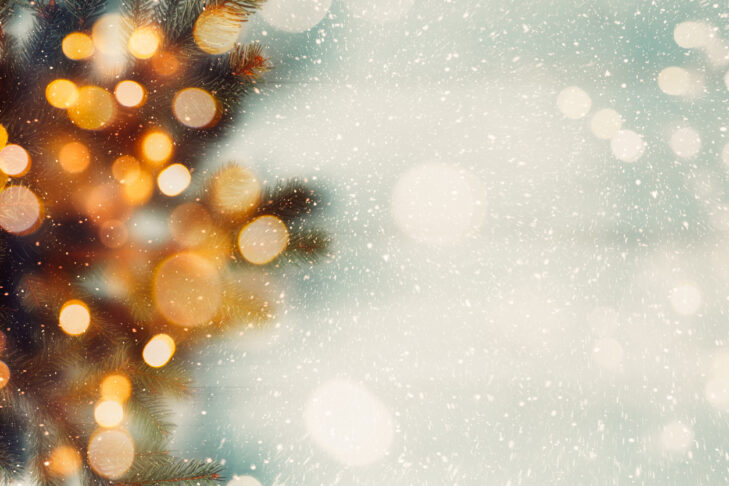What has always captivated my attention is not how various religious traditions differ, but where they converge. There is great power when ancient wisdom traditions come together and say the exact same thing. Nowhere is this more obvious than right now, as the winter holy days of Christmas and Chanukah are about to begin.
Make no mistake about it—Christmas and Chanukah are not shopping days, nor presents days, nor mere holidays—they are holy days, regardless of how commercialized or trivialized they have become.
It’s not merely about the historical narratives surrounding these holy days, or the myths that have evolved in their place. These meanings are for those who practice these respective holy days to decide. It’s not my interest or concern. What compels me is why we celebrate Chanukah and Christmas at this specific time of the year.
Why? Because it’s dark, really dark. The days are short, the shortest they will be all year long. The nights are long, and here in most of the U.S., they are bitter cold as well. Living within the dark and the cold eventually takes its toll upon you. SAD (Seasonal Affective Disorder) and darkness fatigue and the blizzard blues (at least here in Colorado) really are a thing.
Enter the Festival of Lights—Chanukah and Christmas. Each comes along as much as a human response as a religious response—each a human response to the dark depths of winter. Each, in their respective way, attempts to dispel the darkness the only way darkness is ever dispelled—through lighting lights. And it’s not just the Christians and Jews who respond in this way. The Hindus have Diwali, albeit in the fall, but always on a day with no moon, along with Sikhs, Buddhists and Jains. For the Chinese, the Winter Solstice is a celebration of the triumph of yang (light) over yin (dark). Each of these traditions, and their rituals, hold within them thousands of years of shared purpose and power, each a clear metaphor for shining inner spiritual light and illuminating a darkened world.
Whether Hindu or Jew, Buddhist or Christian, human beings are human beings, and what we all share is a natural, primal aversion to living too long within the dark. The dark days of winter have their place, but there comes a point when enough is enough and we can no longer passively sit within the dark. The same is true when the darkness descends within our personal life. There comes a time when we simply need to rise up against the cold, resist the darkness and respond through illuminating lights.
This Christmas and Chanukah season, let’s reframe these days (or nights) not as holidays, but as holy days. And this holy day season, let us focus not on what divides us, but what unites us—the human desire to dispel the darkness through illuminating lights.
Most of all, may these holy days be a reminder that no matter how dark it might be, there are always sparks of possibility, meaning and inspiration waiting to be discovered by you within the depths of your darkness. No matter how dark it might seem, you can do this. You can become a spark seeker.
In the words of Rabbi Schneur Zalman of Liady, “A little bit of light dispels a lot of darkness.”
A little bit of light, even one spark, is how you begin to illuminate the dark. Every day after that, just like on our calendar, is a journey of ascending from the darkness into the light.
This post has been contributed by a third party. The opinions, facts and any media content are presented solely by the author, and JewishBoston assumes no responsibility for them. Want to add your voice to the conversation? Publish your own post here. MORE



